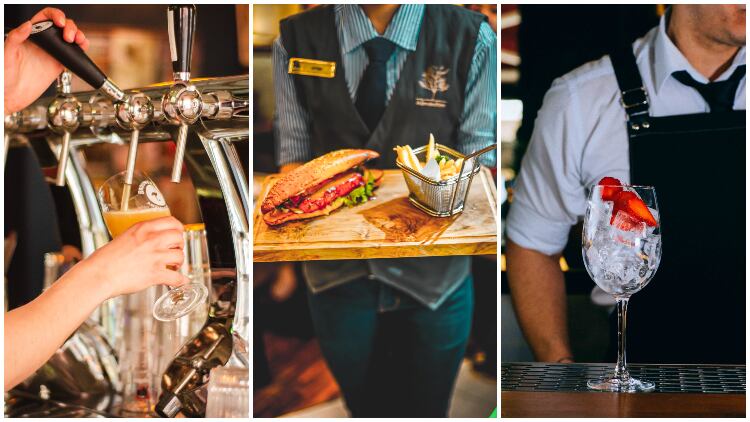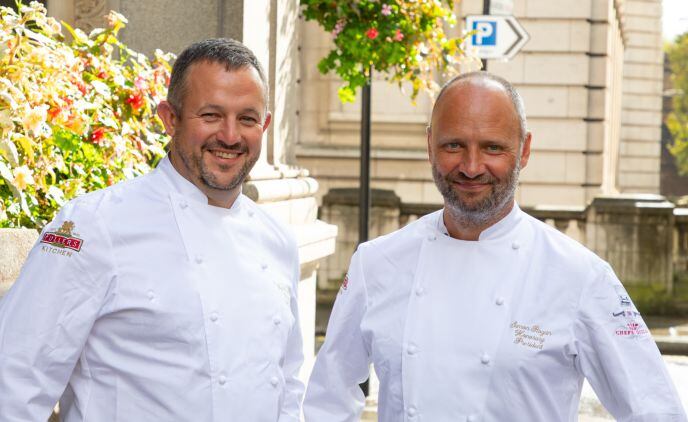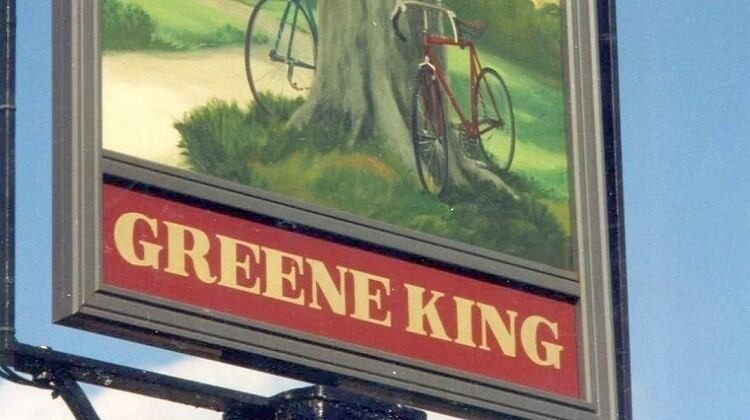From improving performance and job satisfaction to boosting morale, training at the pub is good for business.
Louise Sui, managing director at specialist licensed trade training company CPL, says courses can be used to enhance skills and improve knowledge for team members within specific roles.
“As well as the mandatory compliance topics such as food safety, personal licence training and GDPR, there are a wide range of training courses aimed at improving product quality and the customer experience,” Sui says.
HIT Training Hospitality Academy principal Jeremy Scorer also highlights apprenticeships, calling them “cost effective and very comprehensive”.
With a plethora of choice available, how do you decide which type of training is necessary?
“We would always suggest first looking at what training is currently in place and reviewing the mandatory compliance topics,” explains Sui. “If you see any areas where you could be doing better – or if you are at risk – then it is important to address these first.”
From there, Sui suggests looking at what you want to achieve, be it an increase in premium spirits sales, improving customer service or providing management training.
Courses in cellar management, for example, cover a wide range of topics such as how to maintain a safe and hygienic cellar, how quality drives profit – and how to pour the perfect pint.
“Cask Marque states 34% of customers would not return if the quality of a pint served was poor,” says Sui. “By training your team to deliver the best pint possible, you are sure to see an increase in sales, reduction in waste and an increase in customer loyalty.”
It is also worth noting that training doesn’t have to come from a formal course, adds HIT’s Scorer.
“I’m a big believer that every operator is a trainer in their own right,” he says, adding that a licensee will train staff “whether they know they do or not”.
“We look to identify what gaps may exist – they can be compliance, skills or development. Then we go back to the employer with a proposal for working in conjunction with them.”
Scorer also outlines different styles of training, including workshops as well as certified qualifications.
Wine training, for example, can be a practical workshop, based around opening bottles at the table, pairing wines with food and understanding the basics of production.
“We can also deliver qualifications in line with programmes such as the Wine & Spirit Education Trust,” he adds.
Fuller’s training relaunch
In April, Fuller’s relaunched its training programme as the pub company looks to better communicate career options.
Group development manager Mark Peters says the new programme is divided into three sections: ‘Begin’, ‘Become’ and ‘Beyond’.
The first stage incorporates core compliance, while role-orientated ‘Become’ includes technical courses such as first aid and kitchen skills. The final stage, ‘Beyond’, includes the company’s inaugural degree-level qualification, designed to get assistant/deputy managers to general manager level.
Fuller’s also offers apprenticeship schemes – largely focused on back-of-house roles. So far, says Peters, 50 staff have completed the 14-month level 2 commis chef apprenticeship, with 16 of them moving up to chef de partie and taking on level 3 training.
“Our goal is to have 200 people enrolled in apprenticeships this year,” he adds.
The newly-launched programme also includes a mental health first aid course – a one-day course akin to other first aid training. “We are aiming to teach those in management roles how to handle mental health and remove some of the stigma attached to it,” adds Peters.
Complexities of food offer
In terms of skills shortfalls, Scorer says catering is among the most common.
“New licensees, perhaps with rose tinted spectacles, take on a premises thinking that they have a couple of friends that ‘do a bit of cooking’ and all of a sudden they realise the complexities of introducing a food offer,” he says.
When it comes to food compliance, Stephanie Collyer, head of the food health & safety division at Venners says a licensee is legally responsible for maintaining food and allergen safety standards at their pub.
“All staff must be trained in controlling food safety hazards, controlling temperatures, food storage and preparation, cross contamination, equipment and premises cleaning, personal hygiene and allergens,” she says.
While training can be in-house or on-the-job for staff, a licensee should be trained to Level 3 Food Hygiene, Collyer adds.
Allergens have also hit the headlines in the past year or so, following the tragic death of a teenager who had an allergic reaction after eating a sandwich from Pret A Manger.
“When allergen information is provided as part of a conversation with a customer, it must be backed up by written details,” says Collyer. “It is, therefore, essential that all back and front-of-house staff are trained and know how to respond to any allergen queries they may be asked to maintain accuracy and consistency.”
Training budgets
Beyond compliance training, the amount a licensee should budget for staff development depends on the size and scale of the business.
It is worth noting that a small investment in training and learning can also lead to financial savings, says Scorer.
“I may speak to an operator and ask why they would need four staff when three well-trained staff could do the job more effectively,” he says.
Investing in staff development may also mean licensees can take a day off.
“Some operators refuse anyone access to their cellar, through fear of them changing wrong barrels, disconnecting gas, but all of a sudden a licensee is then beholden and tied to the business all the time,” Scorer adds.
Elsewhere, e-learning packages can allow operators to cover a wide range of topics for a reasonable cost.
“Coupled with some key face-to-face training courses, you can build a comprehensive training programme for less than you might think,” says CPL’s Sui.
HIT’s Scorer also emphasises that not all courses need to cost money, flagging full or part-funded training in areas such as safeguarding, child protection and underage sales. He also says industry visits to breweries, for example, are often free since brands are eager to share best practice when it comes to storage and service.
Overall, Sui believes it comes down to a willingness to invest in a team member to keep them engaged, motivated, delivering great service and driving sales.
Or, in the words of billionaire entrepreneur Richard Branson: “Train people well enough so they can leave, treat them well enough, so they don’t want to.”




